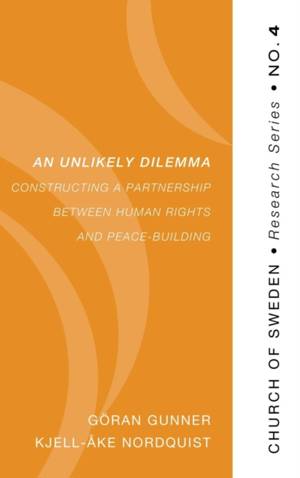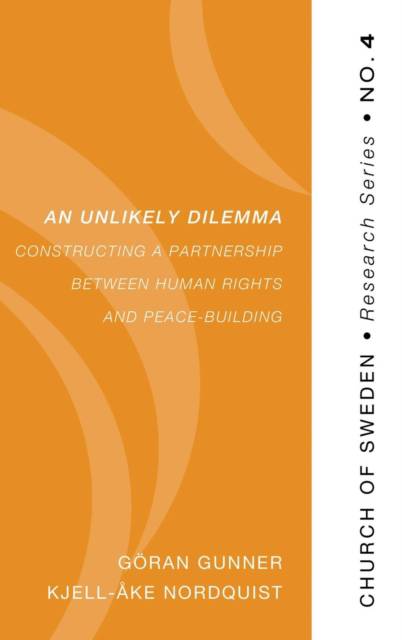
- Afhalen na 1 uur in een winkel met voorraad
- Gratis thuislevering in België vanaf € 30
- Ruim aanbod met 7 miljoen producten
- Afhalen na 1 uur in een winkel met voorraad
- Gratis thuislevering in België vanaf € 30
- Ruim aanbod met 7 miljoen producten
Zoeken
An Unlikely Dilemma
Constructing a Partnership Between Human Rights and Peace-Building
Göran Gunner, Kjell-Åke Nordquist
€ 62,45
+ 124 punten
Uitvoering
Omschrijving
In a world where armed conflict, repression, and authoritarian rule are too frequent, human rights and peace-building present key concepts and agendas for the global and local struggle for peace and development. But are these agendas congruent? Do they support each other? Many organizations, states, and individuals have experienced how priorities of one agenda create friction with the other. For instance, are justice and reconciliation incompatible goals? If not, do they lead to counteracting initiatives? How can local and international actors develop support to societies that search a way out of violence and repression without violating universal moral standards, in an imperfect and resource-scarce situation? This study departs from the view that both human rights and peace-building are agendas with specific and unique contributions. In order to deal with overlapping claims that the two agendas sometimes formulate, in both conflict and post-conflict situations, this study suggests specific approaches in order to create synergy effects of agenda cooperation.
Specificaties
Betrokkenen
- Auteur(s):
- Uitgeverij:
Inhoud
- Aantal bladzijden:
- 190
- Taal:
- Engels
- Reeks:
- Reeksnummer:
- nr. 4
Eigenschappen
- Productcode (EAN):
- 9781498259842
- Verschijningsdatum:
- 1/08/2011
- Uitvoering:
- Hardcover
- Formaat:
- Genaaid
- Afmetingen:
- 152 mm x 229 mm
- Gewicht:
- 430 g

Alleen bij Standaard Boekhandel
+ 124 punten op je klantenkaart van Standaard Boekhandel
Beoordelingen
We publiceren alleen reviews die voldoen aan de voorwaarden voor reviews. Bekijk onze voorwaarden voor reviews.











